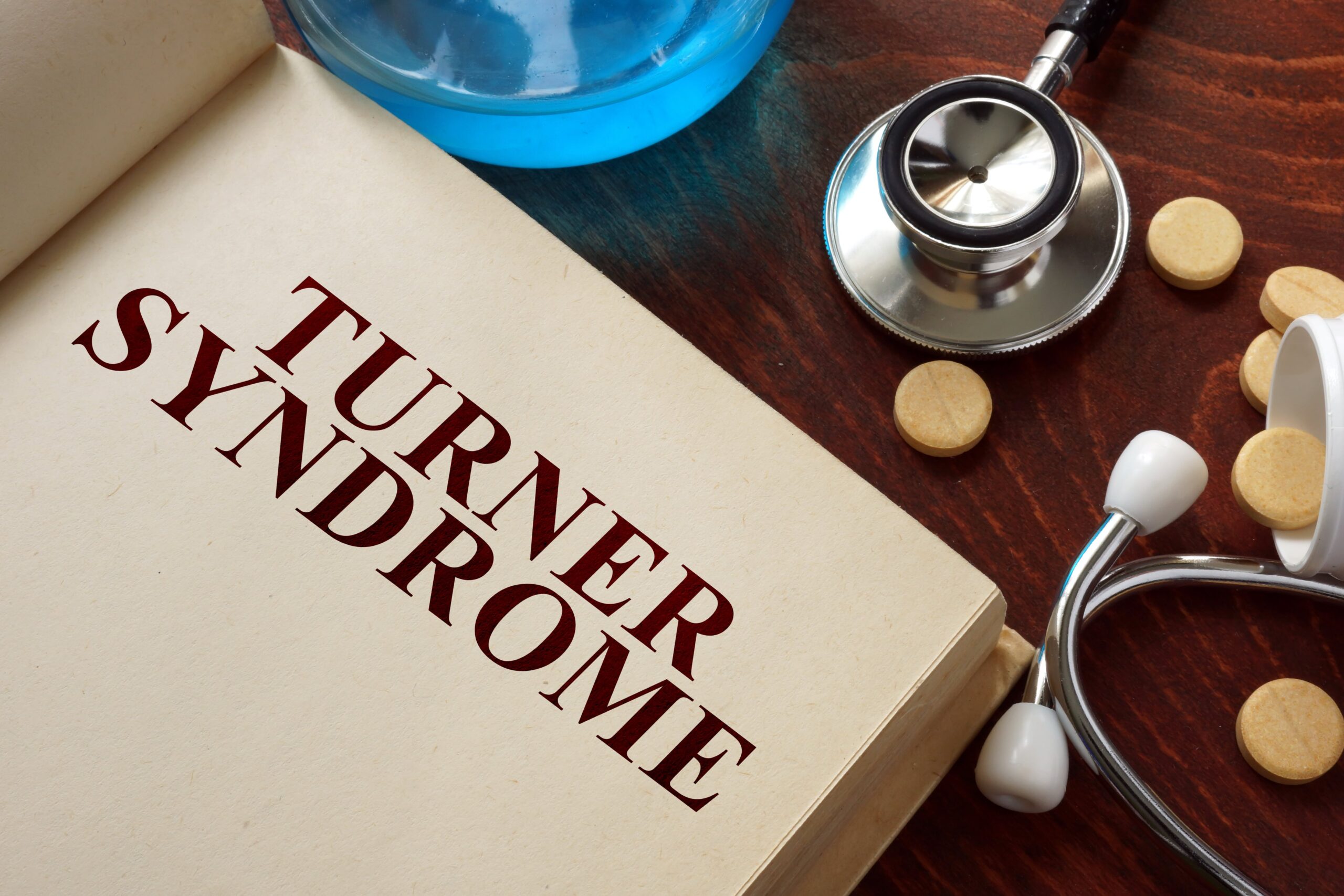Turner Syndrome affects approximately 1 in every 2,500 female births worldwide. This chromosomal rarity, characterized by the absence or partial loss of one X chromosome, impacts a person’s genetic makeup and shapes their development and health. Understanding its symptoms, diagnosis, and treatment options is crucial for those affected and their families.
Symptoms of Turner Syndrome
The symptoms of Turner Syndrome encompass a spectrum that touches upon physical attributes and potential health concerns.
Common physical features include:
- Short Stature: Girls with Turner Syndrome often have shorter-than-average height.
- Webbed Neck: A broad neck with excess skin or a web-like appearance.
- Underdeveloped Features: Some physical features, such as the ovaries, might be underdeveloped, leading to infertility.
- Low Hairline at the Back of the Neck: A lower hairline than usual.
Health Issues:
- Cardiovascular Problems: There might be an increased risk of heart defects and other heart-related issues.
- Kidney Abnormalities: Some individuals might have kidney problems.
- Hearing Loss: This can occur in some cases.
- Learning Disabilities: Some individuals might experience challenges in spatial and math-related skills.
Diagnosis
Diagnosing Turner Syndrome typically involves a combination of physical examinations, medical history reviews, and specific tests. Here’s an outline of the diagnostic process:
- Physical Examination. Doctors look for characteristic physical traits associated with Turner Syndrome, such as short stature, webbed neck, and other distinctive features.
- Medical History Review. Understanding the patient’s medical history, including any family history of genetic conditions or developmental issues.
- Testing. Karyotype analysis is a definitive test to diagnose Turner Syndrome. It involves taking a blood sample and analyzing the chromosomes. Turner Syndrome is characterized by a missing or partially missing X chromosome in the cells. Ultrasound Imaging can help detect abnormalities associated with Turner Syndrome, such as heart defects or kidney issues. In prenatal diagnosis, ultrasound during pregnancy can sometimes indicate signs of Turner Syndrome, prompting further testing.
- Additional Tests. Assessing hormone levels, including estrogen, luteinizing hormone (LH), and follicle-stimulating hormone (FSH), can help understand the individual’s hormonal status. Some individuals might undergo cardiac imaging or other tests to evaluate heart health, as heart defects are relatively common in Turner Syndrome.
- Genetic Counseling: After diagnosis, genetic counselors can help individuals and families understand the implications of Turner Syndrome, address concerns, and explore available treatment options.
Early diagnosis is crucial for timely intervention. Many features and health concerns associated with Turner Syndrome can be managed more effectively with early identification and appropriate medical care.
Living with Turner Syndrome
Living with Turner Syndrome encompasses a multifaceted journey marked by medical management, unique growth experiences, and distinct challenges. Regular medical check-ups are essential, given the need for ongoing monitoring of associated health concerns such as heart conditions, hormonal imbalances, and kidney issues. Height differences are expected, prompting some individuals to opt for growth hormone therapy.
Managing puberty and hormonal changes through hormone replacement therapy is often a part of the journey. Fertility challenges due to underdeveloped ovaries can pose hurdles for those desiring to conceive, prompting exploration into fertility treatments. Emotionally, seeking psychosocial support and navigating potential learning disabilities while ensuring appropriate educational accommodations are crucial.
Personal empowerment involves self-advocacy skills and finding solidarity within communities or networks of individuals sharing similar experiences. With a multidisciplinary approach to healthcare and access to tailored support systems, individuals with Turner Syndrome can lead fulfilling lives, pursuing their aspirations and thriving despite the condition’s inherent challenges.
Treatment Options
While Turner Syndrome cannot be cured, various treatments and interventions can help manage its symptoms and associated health issues, including:
- Growth Hormone Therapy to improve height in girls with Turner Syndrome.
- Estrogen Replacement Therapy to induce puberty and maintain bone health.
- Cardiac Monitoring and regular check-ups and monitoring for heart-related issues.
- Assisted reproductive technologies and fertility treatments might be an option for some individuals.
Support and Resources
For individuals and families dealing with Turner Syndrome, support groups and resources can be invaluable. Connecting with others facing similar challenges can provide emotional support and valuable insights into managing the condition.
We Can Help
The Health Service Alliance (HSA) is pivotal in empowering individuals affected by Turner Syndrome. Specifically catering to low-income residents in southwest San Bernardino County, California, HSA’s outreach extends to hundreds of thousands living below 200% of the Federal Poverty Level (FPL). Encompassing the cities of Chino, Montclair, Ontario, Pomona, and Upland, as well as reaching out to Palm Desert in the east and Rancho Cucamonga in the north, HSA is a lifeline, providing essential resources and support crucial for early detection, intervention, and improving the quality of life for those navigating Turner Syndrome.

